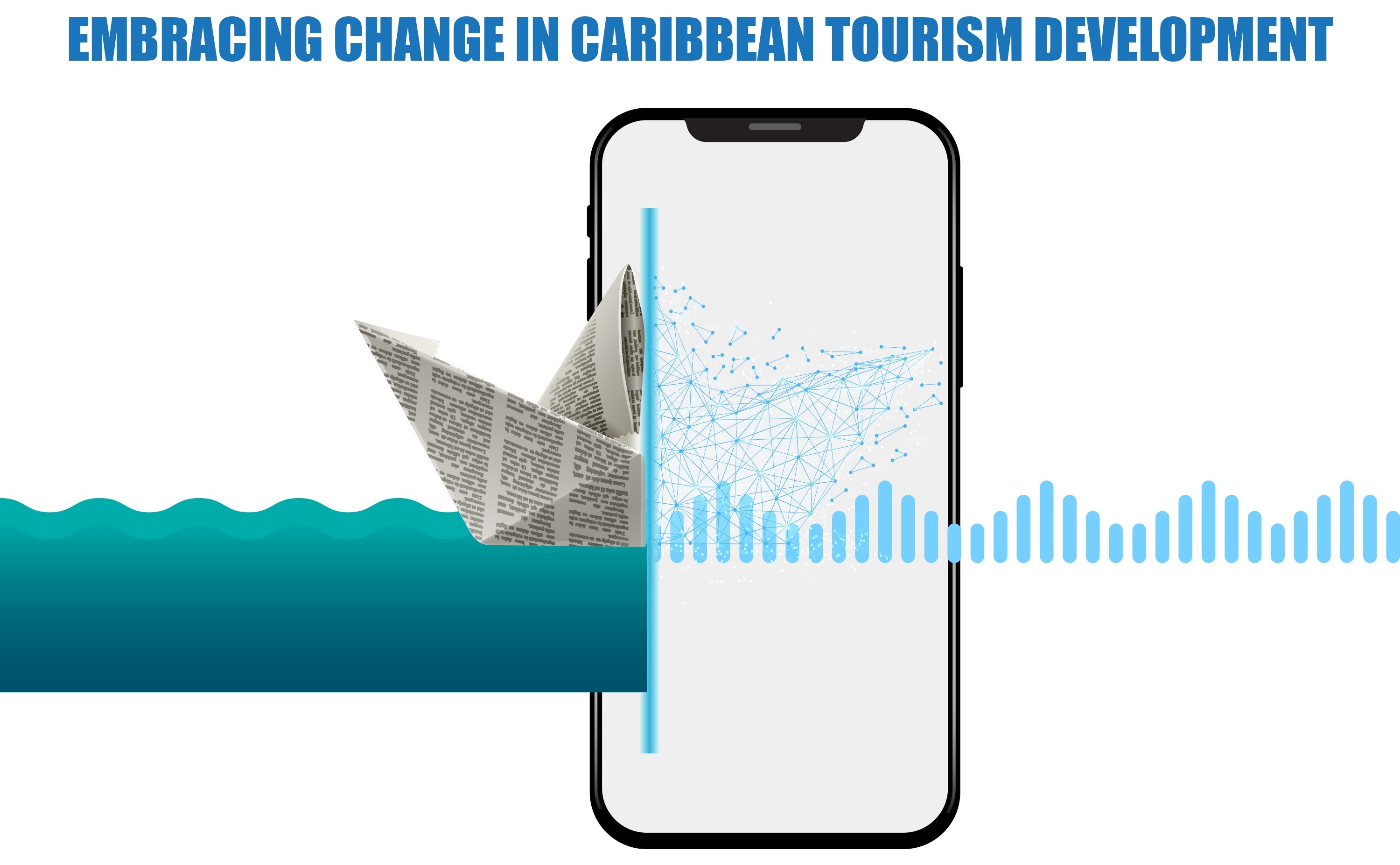“Don’t copy the behavior and customs of this world, but let God transform you into a new person by changing the way you think.” – Romans 12:2
Caribbean tourism, with its potential to be a pervasive cornerstone for sustainable socioeconomic development, has undergone significant changes over the past six decades. Initially catering to leisure seekers drawn to the region’s “sun, sand, and sea,” the industry has evolved considerably. Today, tourism marketers face a sea of changes influenced by:
1. Tourism linkages: These have expanded service opportunities.
2. Digital marketing: Information and communications technology (ICT) has revolutionized information distribution via social media and online platforms.
3. Enterprise development: This has facilitated the conversion of business opportunities.
The impact of these changes is redefining the transformation of the industry.
In the early days of “sun, sand and sea” tourism, hotels, restaurants, and entertainment marketing strategies heavily relied on advertising agents who created campaigns based on market research and advised clients on advertising budgets across print, out-of-home (OOH), radio, and eventually television media. This approach paved the way for the development of the public relations and marketing sectors.
Tourism linkages emerged organically, increasing demand-driven opportunities for the global consumption of goods and services indigenous to the region. These include diverse offerings such as food, fisheries, culture, investment, transportation, renewable energy, and more. Their distinctiveness lies in their regional roots and competitiveness.
The advent of digital marketing revolutionized the industry. Initiated by the introduction of computers in the 60s and further transformed by smartphones post-2010, it now controls how we work, communicate, shop, bank, relax, and entertain ourselves.
As regional author and digital media professional Ewort Atkinson notes, “As the world rapidly transitions to a digital-first approach, non-digital professionals and business owners in the Caribbean must equip themselves with the necessary digital marketing skills to remain competitive.”
While these opportunities constitute the vision of industry growth, the action lies in enterprise development – converting business opportunities into reality. This area still requires significant attention and effort to influence economic growth.
The 3M Shepherding Model could be a potential solution. This model, ready for implementation, needs a champion. The available opportunities are prolific, but the key lies in training entrepreneurs and shepherds effectively. Additionally, mounting and investing in a “quick response revolving equity capital fund with shepherding as collateral” is the missing link.
Let us seize this moment to showcase the best our region offers and build a prosperous future for generations to come.

(Dr. Basil Springer GCM is a Change-Engine Consultant. His email address is basilgf@marketplaceexcellence.com. His columns may be found at https://www.nothingbeatsbusiness.com).
